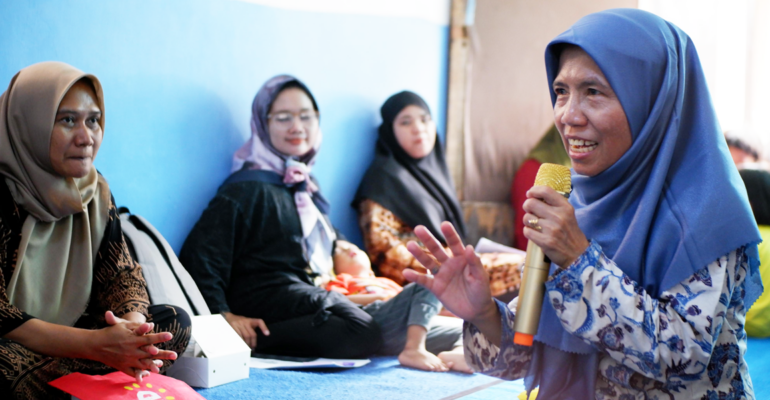Improving the Quality of Children, IPB University Provides Assistance through the Quality Family School Program

Child investment is an important element in the formation of a sustainable and quality society. By understanding the value of children, the utilization of family resources and parental obligations can achieve better results in children’s development.
IPB University as an academic institution plays a role in supporting children’s investment in terms of education, skills development, social support, and preparation for the future. In this case, the Directorate of Agromaritime Community Development (DPMA) in collaboration with the Department of Family and Consumer Sciences (IKK) again held a Quality Family School program with the theme ‘Child Investment to Improve Child Quality’ in Balumbangjaya Village, Bogor, West Java.
Dr Istiqlaliyah Muflikhati, lecturer at the Department of IKK IPB University explained the importance of education in the development of children’s character. On that occasion, she explained, a child has four important values including religious value, economic value, social value, and psychological value.
“Religious value in a child means that the child is a trust from God that must be guarded and cared for. Children are also a source of love and a means of reward for parents who care for them,” she said.
In addition, she continued, children also act as a source of sustenance, helping parents work, helping parents earn a living, helping the family economy, and becoming the foundation of life in old age. This is what adds economic value to children.
“A child also has social value, namely as a successor, as an heir, and as a source of pride for parents in society. In addition, children also have psychological value by causing feelings of security, security, pride, and satisfaction, encouraging enthusiasm for work, entertaining parents, and strengthening parental relationships,” she explained.
On this occasion, Dr Istiqlaliyah also explained that three types of family resources can be maximized for child investment, namely human resources, material resources, and time resources. Human resources (HR) include physical, spiritual, and spiritual aspects and consist of affective (feelings), cognitive (thinking), and psychomotor (physical skills).
Meanwhile, material resources consist of current assets (money, gold) and non-current assets (houses, land). Time resources are assets of fixed value, divided into domestic work and earning a living, with each individual having 24 hours in a day.
“The bigger the child, the more costs that must be incurred by parents, while the less time sacrificed for children,” she concluded. (*/Rz) (IAAS/TNY)



